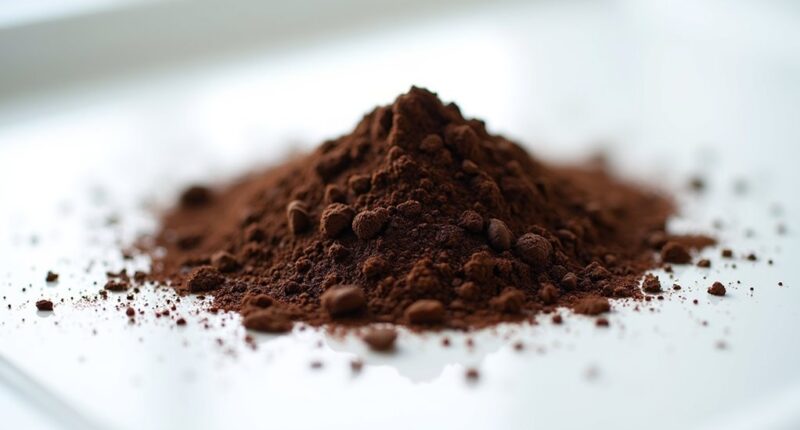When your poop looks like coffee grounds, it’s not just a quirky color choice! It usually means there’s some bleeding happening in your gut, often tied to things like ulcers or gastritis. Yikes, right? If you notice this, it’s time to pay attention, because it could lead to dizziness or weakness. Think of it as your body waving a red flag. Stick around, and you’ll discover more about what’s going on and when to call the doc!
At a Glance
- Coffee ground stool appears dark brown and textured, indicating potential bleeding in the gastrointestinal tract.
- It may be caused by dietary factors such as dark fruits, high-iron foods, or processed foods.
- Internal bleeding often suggests issues like peptic ulcers or gastritis, requiring prompt medical evaluation.
- Accompanying symptoms may include abdominal pain, dizziness, weakness, or chest pain, indicating a need for urgent care.
- Diagnostic tests like FOBT, blood tests, and endoscopy can help determine the underlying cause and appropriate treatment.
Understanding Coffee Ground Stool: Definition and Appearance
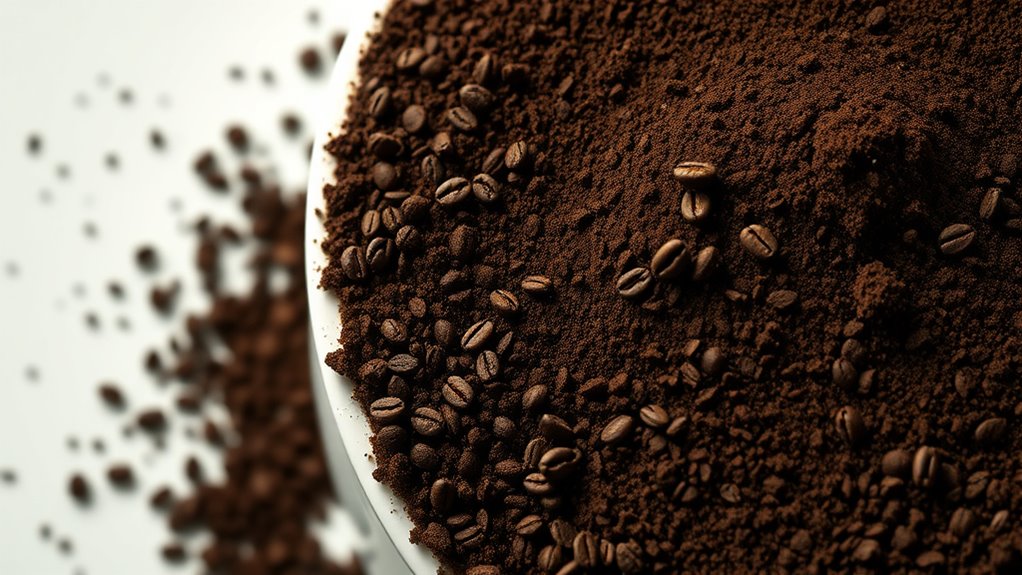
Imagine you’re sitting at a café, sipping a cup of coffee, and you notice something unusual in your bathroom later on.
You glance down and see coffee ground stool—dark brown, with a texture that reminds you of those used coffee grounds left at the bottom of your cup.
It’s not a normal sight! This stool appearance means there’s something going on in your gut, like possible bleeding.
While it sounds strange, it’s important to pay attention. If you spot this, you might want to chat with a doctor. Ground coffee can have rich flavors that you savor, but the presence of coffee ground stool indicates a need for immediate medical attention.
It’s crucial to take notice of unusual signs in your body; a doctor’s visit could be a wise choice.
Better safe than sorry, right? Your health’s worth it!
Dietary Causes of Coffee Ground Stool
So, you’ve spotted some coffee ground stool and you’re wondering what’s going on, right? Well, your diet might be the culprit! Certain foods can leave behind dark pigments during digestion. Check this out:
| Food Type | Dietary Influences | Appearance |
|---|---|---|
| Dark Fruits | Blueberries, cherries, plums | Black specks in stool |
| High-Iron Foods | Oysters, kidney beans | Dark stool coloration |
| Processed Foods | Black licorice, food dyes | Coffee ground-like specks |
If you’ve been munching on these, it could explain your findings! Happy eating! Additionally, consuming low acid coffee may help those with digestive issues, as it is gentler on the stomach.
Internal Bleeding and Its Implications
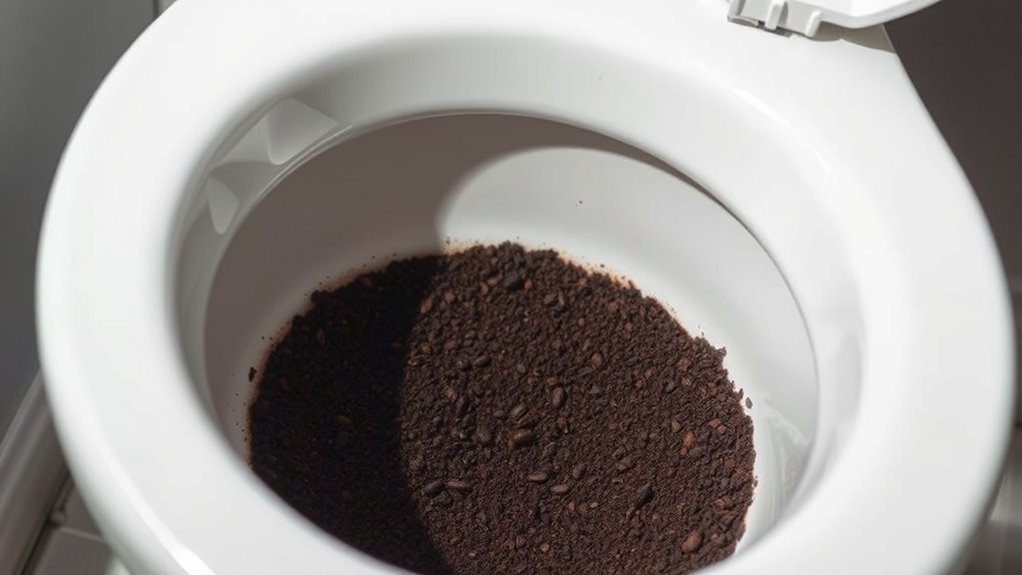
When you spot coffee ground stool, it’s natural to feel a bit uneasy, especially since it can signal something serious like internal bleeding. Here’s what you should know:
- It often points to issues in the upper gastrointestinal tract.
- Common culprits include peptic ulcers and gastritis.
- You may experience dizziness or weakness if bleeding’s significant.
- Don’t ignore it—prompt medical evaluation is essential!
Additionally, certain dietary choices, such as consuming low acid organic coffee, may impact your gastrointestinal health. Your gastrointestinal health deserves attention, and catching these signs early can make a difference.
Associated Health Issues Linked to Dark Stools
If you’ve ever noticed your stool looking darker than usual, it might feel a bit alarming, but don’t panic just yet!
Sometimes, it’s just your lifestyle habits at play. Foods like black beans and blueberries can change things up, or maybe you took some iron supplements.
But on the flip side, darker stools can hint at gastrointestinal health issues. Conditions like ulcers or diverticulitis might be at work. Additionally, certain decaf espresso types can affect digestion and contribute to stool changes.
When to Seek Medical Attention
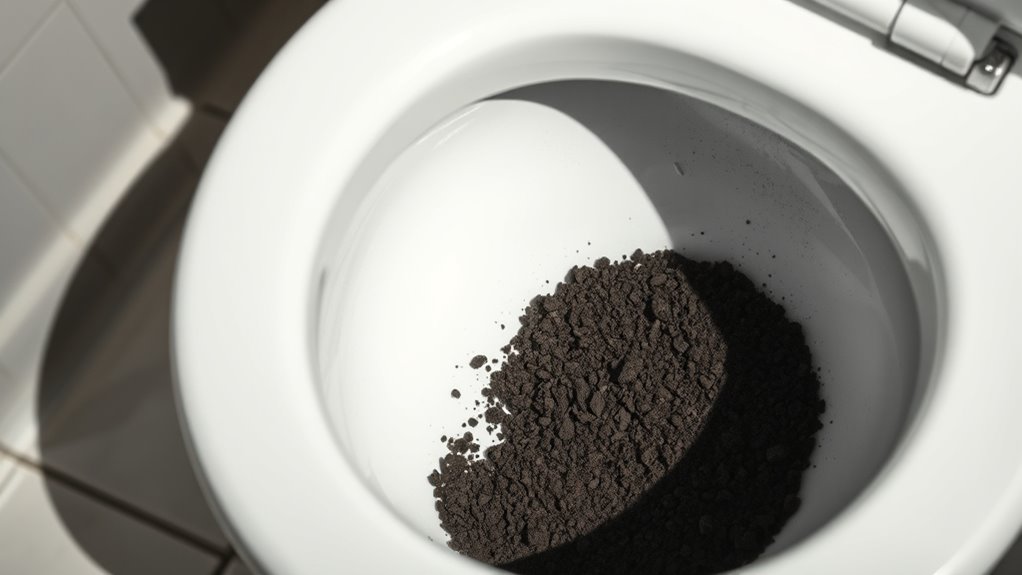
Wondering when it’s time to hit up the doctor about your poop? If you notice coffee ground stool, don’t ignore it!
Here are some emergency signs that mean you need a medical evaluation:
- Vomiting that looks like coffee grounds or has blood.
- Black, tarry stools with dizziness, weakness, or pale skin.
- Shortness of breath or fainting alongside dark stool.
- Severe abdominal or chest pain with bloody vomit.
Stay connected to your health! It’s always better to be safe than sorry, and your doctor can help figure things out if you’re feeling off.
Symptoms Accompanying Coffee Ground Stool
So, you’ve spotted some coffee ground stool—yikes, right? You might also notice some anemia symptoms creeping in, like dizziness, weakness, or even heart palpitations. And let’s not forget gastrointestinal pain! These can signal issues like ulcers or gastritis. Here’s a quick look at what you might experience:
| Symptoms | Description |
|---|---|
| Abdominal Pain | Often due to ulcers or gastritis |
| Dizziness/Weakness | Due to blood loss or anemia symptoms |
| Chest Pain | Could signal esophageal irritation or bleeding |
If you’re feeling off, don’t ignore it! Your body’s trying to tell you something. Additionally, if you’re a coffee lover, be aware that the finest Nespresso capsules can impact your overall health, including digestive issues.
Diagnostic Tests for Identifying the Cause
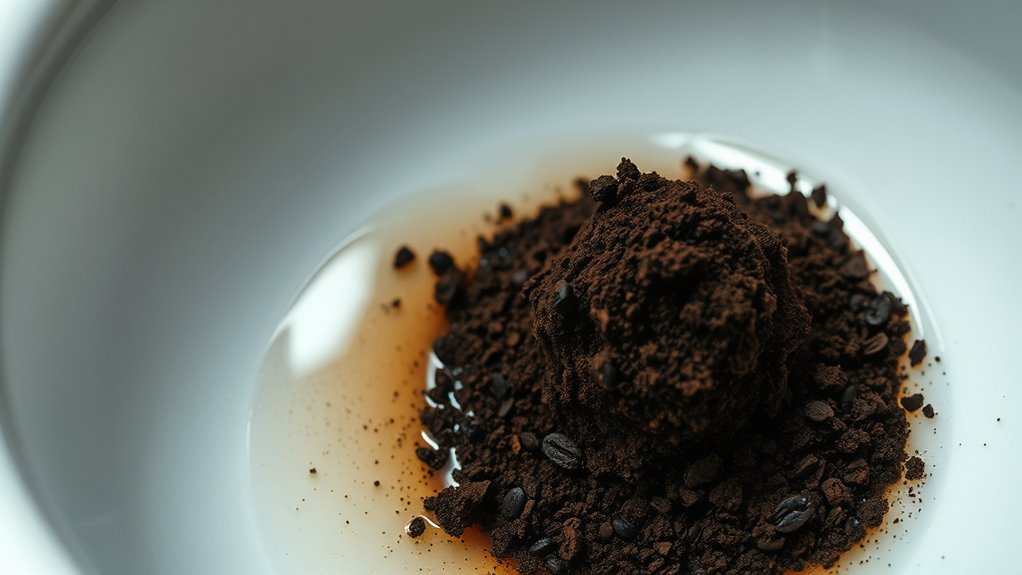
When you notice coffee ground stool, it’s not just a quirky topic to discuss at dinner! It’s a sign that something might be off in your body.
Coffee ground stool isn’t just a conversation starter; it signals potential health issues that warrant attention.
To get to the bottom of it, doctors often recommend a few key tests:
- Fecal Occult Blood Test (FOBT) – Detects hidden blood in your stool.
- Blood Tests – A Complete Blood Count (CBC) helps spot anemia.
- Diagnostic Imaging – Techniques like CT scans can reveal structural issues.
- Endoscopy – A closer look at your upper GI tract to find bleeding sources.
Additionally, certain dietary factors, such as the use of non-dairy creamers, can influence digestive health and might affect stool appearance.
Stay curious and keep your health in check!
Treatment Options for Coffee Ground Stool
If you’ve spotted coffee ground stool, it’s time to get serious about treatment options that can help get your gut back on track.
First, medication management might include proton pump inhibitors to calm that angry stomach. If an infection’s the culprit, antibiotics could save the day!
Next, consider lifestyle adjustments—like ditching iron supplements and upping your hydration game.
Oh, and maybe lay off the booze and NSAIDs for a bit. Additionally, maintaining a balanced diet can support overall gut health and prevent further issues.
Importance of Monitoring and Follow-Up Care
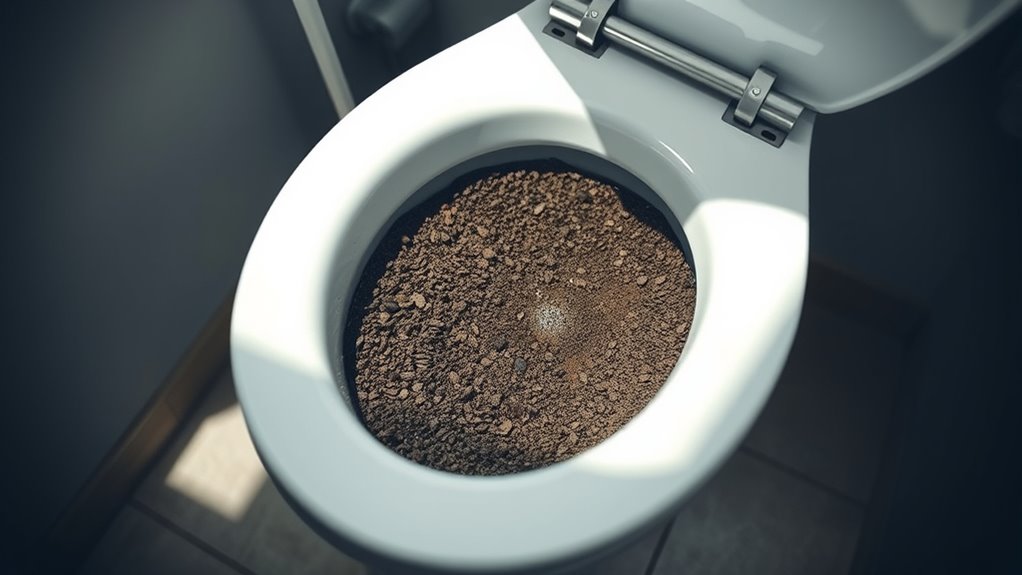
Monitoring your health, especially when it comes to something as sensitive as your gut, is super important, and it can be a total game changer.
Follow-up care is essential to catch any issues early. Here are some great monitoring strategies to keep in mind:
- Track your stool appearance and frequency.
- Note any additional symptoms like dizziness or fatigue.
- Stick to follow-up protocols with your doctor to discuss findings.
- Don’t hesitate to report any changes, especially if things look like coffee grounds!
Additionally, regular monitoring can help identify issues that may require professional cleaning similar to how vinegar is used to maintain a coffee maker’s performance.
Being proactive can really make a difference, so stay in tune with your body and keep the convo going with your healthcare team!
